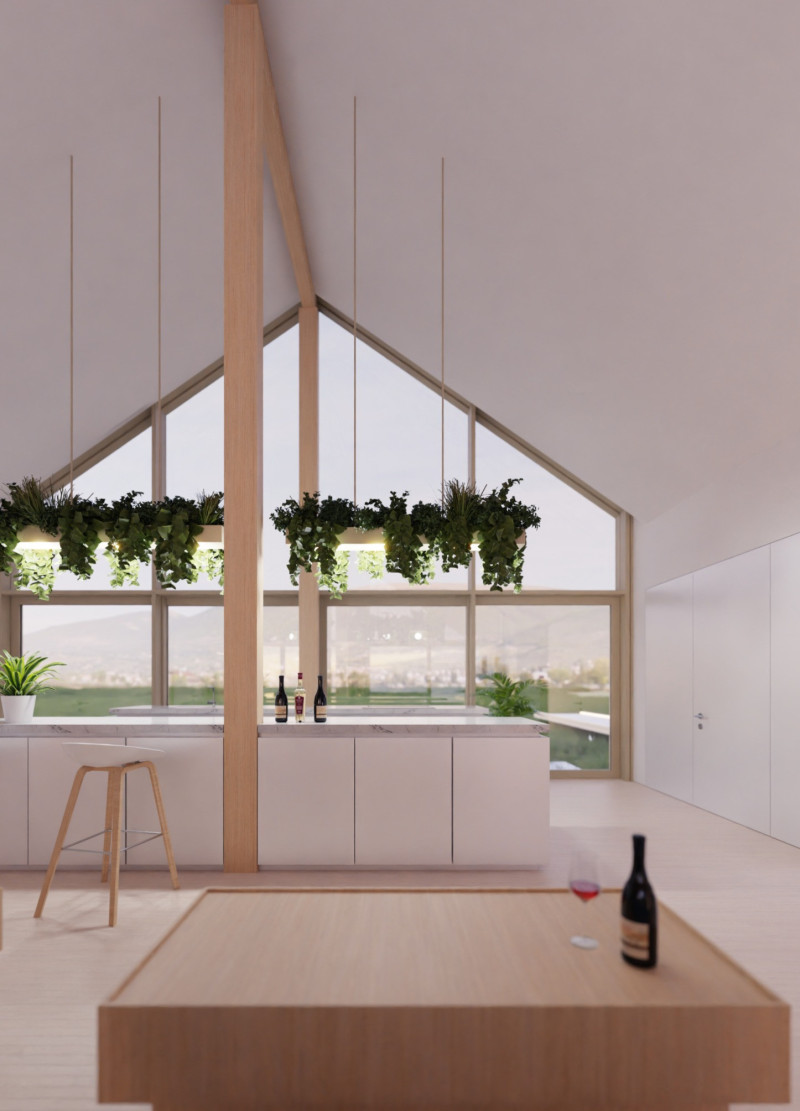5 key facts about this project
Tili Wine Italy Guest Homes is located in the peaceful Umbrian countryside. Designed as a retreat for those wishing to escape busy urban life, the site includes five guest houses and a community space. The design focuses on reconnecting with nature, inviting guests to slow down and embrace their surroundings.
Concept and Orientation
The layout is thoughtfully planned to align with the landscape, with each guest house positioned for optimal views of either sunrise or sunset. This orientation makes the most of natural light throughout the day. The arrangement encourages a calming environment, enhancing the experience of being immersed in nature.
Access and Circulation
Access to the site is through two parallel wooden piers that connect the different buildings. These piers are elevated above the ground, helping to protect the surrounding ecosystem. This design choice supports easy movement between spaces while respecting the natural terrain, allowing the area’s beauty to remain intact.
Structural Innovations
Instead of traditional concrete foundations, removable ground screws are used for the guest houses. This choice minimizes environmental impact and allows the soil beneath to recover. By implementing this method, the design emphasizes sustainability and a commitment to reducing the overall ecological footprint of the project.
Natural Light and Views
Large windows are a significant feature in the guest houses and community area, creating connections to the outdoor landscape. These windows allow for plenty of natural light and provide sweeping views of the hills and the Tili winery. The design encourages the outside world to be part of the guest experience, enhancing the sense of comfort and space.
Incorporating photovoltaic systems further shows the focus on sustainability, allowing the buildings to harness renewable energy. Each aspect of the design contributes to an awareness of nature while providing a tranquil setting for visitors. The balance of functionality and aesthetics creates a nurturing environment that invites guests to take a step back from their fast-paced lives.





















































